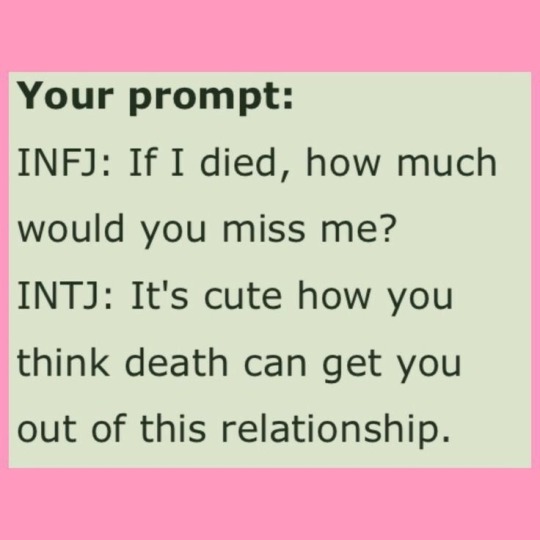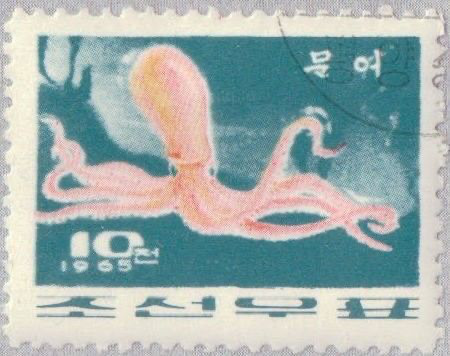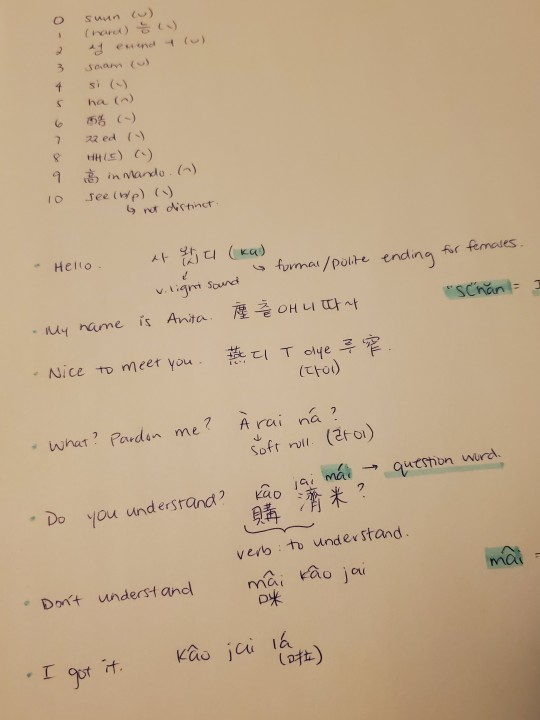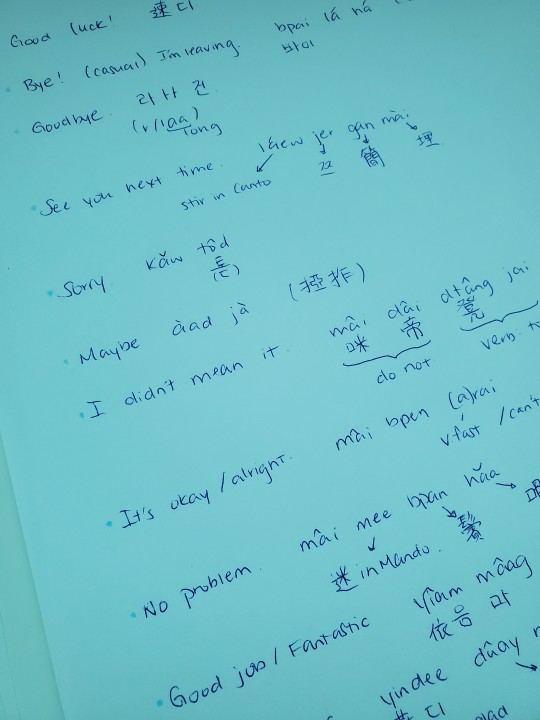#intj mbti
Explore tagged Tumblr posts
Text
Me and my INTJ (Fyodor) one day, trust.

#bsd#bungou stray dogs#bungo stray dogs x reader#bsd fyodor#bungou stray dogs fyodor#fyodor dostoyevsky bsd#fyodor dostoevsky#yandere bsd#fyodor x reader#fyodor x you#feeding my delusions#delulu#delusional#let me live in my delusions#mbti infj#infj mbti#intj mbti#intj x infj#mbti intj
203 notes
·
View notes
Text









INTJ aesthetic
~Pics from Pinterest~
#intj#aesthetic#dark academia#intj aesthetic#aesthetic dark#dark acadamia aesthetic#dark academia aesthetic#dark aesthetic#darkacademia#mbti#intj mbti#intj female#pinterest#my mbti#intj vibes#mbti types#mbti intj#mbti personalities#mbti personality types#intj things#intj thoughts
142 notes
·
View notes
Text
Seo Moonjo's MBTI type (INTJ), an analysis.

I keep seeing people asking for an explanation of Moonjo's Te and claiming that he's an INFJ. Personally, his Te is quite clear to me, so I'll break it down in this post. I'll also explain why he's an INTJ rather than an INFJ or an Fe user. For this purpose, Johan Liebert from Monster will be mentioned and analyzed as well, as I've seen both characters being compared.
I'll start by saying that yes, INFJs can be evil too, but the way they approach things differs from how an INTJ would, even if the ultimate goal is the same. To explain it better, let's take Johan Liebert (INFJ) as an example. Johan's manipulation is Fe-driven, he controls others by tapping into their emotions, fears, and desires, making them feel like their actions are their own choices. He can turn someone into a monster just by planting an idea in their mind, making them believe they wanted it. Moonjo, on the other hand, doesn't manipulate by tapping into people's emotions. Instead of subtly guiding people to self-destruct (like Johan), Moonjo psychologically coerces them directly and puts them in situations that will force them to act a certain way (even going to extremes like drugging them). He also enforces his control with rules, authority, and structure (the rules in the residence, Te). He sees people as variables in his system, and he expects them to follow his personal Fi framework.
Johan's Fe allows him to perfectly understand and mirror emotions to make people feel seen and heard, he's a chameleon. Moonjo has his own deeply personal values (Fi) but doesn't naturally adjust to others' emotions. His kindness is an act and while he's a good actor in the beginning, he can only withhold the show for a bit in passing and shallow interactions. And then when the characters spend more time with him, THEY NOTICE! Some characters, like the policewoman, were initially fooled by his mask but later sensed that something was off. And this is because even if INTJs can mask when it's necessary or strategic, it's tiring and quite cognitively demanding for them, so it makes sense that they can't keep it up forever. INTJs understand that warmth and charm are useful tools and strategic assets, but they don't naturally access them like an Fe user. They can fake it well in short bursts (especially if they're intelligent and observant like Moonjo), but over time, their Te-Fi cracks start showing and they become impatient, blunt, or their real values start slipping through.
Now to illustrate better how Te and Fe play out in action, let's compare both characters' manipulation methods.
Moonjo tries to psychologically manipulate Jongwoo by saying "You really wanted to kill him earlier, didn't you? Think about it. He's a loser, human garbage who watches nothing but weird videos with his door wide open, and he came into your room to touch your things with his dirty hands. I'm sure it gave you the creeps. You don't think you fit in here, do you? 'I'm different from these people'. But you're also kind of anxious. 'What if I end up like them?' No, you think: 'Did I already become one of them by living in a place like this?'". This is Te-Fi dictating Jongwoo's thoughts and feelings. Te is framing reality as cold, harsh facts. "He's a loser, human garbage.", "You think this, you think that", he's not appealing to emotions (Fe), he's presenting them as an objective, irrefutable fact (Te), dictating reality in a way that pushes a logical conclusion: "Since he's garbage, it makes sense that you want to kill him." His Ni also gives him strategic vision, he sees exactly how to break Jongwoo. Te gives him cold rationality, he states things as "logical" facts. And Fi delivers personal attacks on Jongwoo's sense of identity, he makes Jongwoo question who he really is. An Fe user would manipulate based on collective emotion (guilt, obligation, belonging) like we'll see next with Johan.
On the other hand, Johan uses emotional tools like guilt tripping to make people destroy themselves. Here we can see an example of Johan manipulating a detective into unaliving himself. We can see that Johan doesn't force a conclusion outright. Instead, he lays out pieces of information like a trap, leading the man to destroy himself. "It's true that you were seen drinking after you shot him… but something's strange… not one person saw you drinking before you killed him." He's not dictating reality like a Te-user would ("Since he's garbage, it makes sense that you want to kill him.", "You feel/think this, you feel/think that"), he's subtly planting doubts so the man arrives at the horrifying realization himself. And also playing the Fe collectivity with the "Not one person saw you doing what you claim." Johan also says "Can you really meet your daughter and say you've changed?" This is Fe weaponizing shame, guilt, and external perception. "Why are you trying to forget? Or are you just lying? Are you lying to others or are you lying to yourself? (Ti) Did you confirm the boy's crimes? Did you have the right to execute him? (Fe) Do you think that by lying your sin will go away? (Fe-Ti)". His questioning is designed to evoke guilt, shame, and internal conflict using the target's own emotions and Ti logical self-examination. Johan isn't just blurting out a conclusion, he's laying a mental trap. This contrasts with the Te-Fi approach, which forcefully dictates how Jongwoo feels or thinks: "You don't think you fit in here, do you? 'I'm different from these people'. But you're also kind of anxious. (Te-Fi) 'What if I end up like them?' No, you think: 'Did I already become one of them by living in a place like this?' (Te-Fi)" Moonjo is literally telling Jongwoo what he thinks or feels. He's literally answering his own questions instead of letting Jongwoo arrive to the conclusion on his own. His tone is also more direct, pushing for a reaction. Meanwhile, Johan makes people feel like it's their own idea by subtly shifting their emotional reality, he creates a social and emotional atmosphere that leads them there without them realizing it. Moonjo doesn't try to make it seem like Jongwoo came to this conclusion on his own. He's directly telling him who he is and what to do.
Johan, on the other hand, doesn't push for direct action like this. Instead, he subtly weaves a narrative to make the person think it was their own decision, creating an illusion of free will. For example, here's a scene of Johan manipulating an orphan into unaliving himself. Johan doesn't just state facts like an INTJ would. He frames everything in a way that emotionally crushes the orphan. "What if your mother pretends that she doesn't recognize you?" This immediately plants a devastating doubt, making the orphan question something he was absolutely certain of. "Who wanted you?" Instead of saying outright "No one wanted you," he forces the orphan to answer that question himself. An INTJ might manipulate someone into acting a certain way but wouldn't frame it in such an emotionally devastating way. Johan is making the orphan feel unworthy of existence itself. That's Fe. Then Johan said this "You'll be able to recognize your mother and she'll be able to recognize you when she sees you. But if no one calls out to you... that means nobody wanted you (Ti)... What will you do then?" Johan doesn't tell the orphan outright that he's unwanted, he makes him realize it himself. He plants the idea in a way that will fester and consume the orphan from the inside. Moonjo on the other hand actually tells Jongwoo he's a killer and that he wants to kill Jaeho: "You wanted to kill him when you saw him with your girlfriend, didn't you? If you want to kill him, do it. That's who you really are." Te is about making things happen, not sitting around processing emotions. If Moonjo was an Fe user, he would try to guilt-trip, emotionally appeal, or manipulate subtly. Instead, he states it as a fact, as if it's already set in stone.
Here's another example: Moonjo said, "You wanted to kill him when you saw him with your girlfriend, didn't you? (Te pushiness). If you want to kill him, do it (Te command). That's who you really are (again Te-Fi dictating his identity)." While it may seem similar to what Johan does, there's a key difference in approach. Moonjo is not guiding Jongwoo's emotions or planting seeds to make him reach the conclusion on his own like Johan would do. "You wanted to kill him, then kill him." That's Te cutting through hesitation and pushing for results. There's no emotional cushioning, just cause - effect. It's almost like a command rather than a persuasion. He's pushing him toward action, treating emotions like facts "You want to kill him, so act on it."
More examples of his Te: Moonjo is also quite bosy with his subordinates from the residence: He keeps treating them in authoritative ways, telling them "Do this, I always have to be repeating myself!", his kindness with others is just an act and it doesn't extend to the people from the residence. He sets rules and structures (Te) for how he operates, making his "art" systematic. When he killed Gi-hyeok, he said "Why did you do that without my permission? There are rules here!" He enforces strict guidelines to ensure things happen according to his plan. Te wants things to be organized, efficient, and executed properly, even if it's within a twisted Fi moral framework. It's obvious that Moonjo cares about rules a lot, but not general rules, HIS rules, and he establishes them, creating a system (Te) to support his Ni-Fi vision ("murder = art", "do what you want when you want to, don't let society dictate what you do"). Te is about structure, efficiency, enforcing order, hierarchy, authority, and following HIS Te-Fi rules. Moonjo cares about control, delegation, and making sure things run according to his system. An Fe user would enforce rules based on social and collective cohesion, or shared values, and if evil, they would use guilt-tripping or emotional manipulation to rule. But Moonjo rules instilling fear, with forceful dominance, with authority and control over others, imposing his Ni-Fi goals over the people from the residence with his Te.
He has also repeatedly told the people from the residence something like "You must follow MY rules, or there will be consequences." For example, once Moonjo told one of the twins "I clearly remember telling you to clean up. This is the problem. You aren't enjoying this situation at all. You're scared, aren't you? Just do as I say. That's the only way you can live here." He's direct, blunt, and instead of emotionally guiding the twin (like an Fe user), he imposes structure and commands. Johan, on the other hand, makes his subordinates want to work for him. Meanwhile Moonjo commands obedience in the moment. Johan would have slowly led the twin to believe on his own that compliance was the only way. Instead Moonjo uses: Ni to read the overall situation, Te to issue a clear, structured command ("Do as I say. That's the only way you can live here.") and Fi to make an internal judgement of the twin ("You're supposed to enjoy this, but you're not. That's wrong").
There's also that scene where Moonjo tells Jongwoo: "Don't ever hide anything from me, do you understand?" that line shows again his Te bluntness. Moonjo uses a commanding tone, he expects obedience and transparency. This is not Fe persuasion, but Te enforcement. He imposes control and demands things to be straightforward and clear, without the emotional and persuasive nuances that Fe might bring. Fe would use a softer approach or an emotional manipulative method to get Jongwoo to open up. That line also contains a bit of Fi because of the personal attachment and possessiveness.
Yet another example of this: Moonjo tells Jongwoo "Kill him with this knife. Then I'll let your girlfriend live. You have no other choice. Why are you hesitating?" That line is dripping with Te dominance because he's ruthlessly forcing a controlled outcome. Instead of "You have no other choice", an INFJ would guide them into believing it's their own choice.
More examples: In the scene where Jongwoo was taken to the police station for beating up the teenagers, Moonjo went to the police station and told this to the mothers "Are you sure you don't want to make a settlement?", the mothers said "No, he (Jongwoo) has to apologise, we'll never make a settlement!" and then Moonjo said "If you make a settlement now, I'll pay you as much as you want, are you sure you don't want to make a settlement?". This is Te, not Fe because Moonjo went straight for a concrete, pragmatic and transactional solution: offering money. There was no attempt to smooth things over emotionally like an Fe user would do. Te is about efficiency, problem-solving, and getting things done in a straightforward manner. Moonjo here directly offers a practical, results-oriented solution (money) to resolve the conflict. An Fe user would likely have approached the situation with emotional negotiation and persuasion. Could an Fe user have offered money too? Yes, but the way they would have approached it would be different. Instead of being so straightforward, they would probably apologize to the mothers on behalf of Jongwoo and try to soothe and persuade the situation smoothly only to then offer the money.
Moonjo also made a scene at the restaurant when he saw Jongwoo fighting with Jaeho. He went and introduced himself and then started to say very blunt things to Jaeho like "You're disgusting", "You're a CEO, that's why you're so full of yourself", "Don't pretend to care about Jongwoo", "You just want his cheap labor and his girlfriend". This is Te bluntness all the way, Te doesn't sugarcoat things. When they speak, it's straight to the point, and often cuttingly direct, especially when they don't see a need to "play nice" and Moonjo saw no need to play nice here. Another thing pointing at Te rather than Fe in this scene is taking control of the situation. Instead of subtly diffusing (or escalating) the tension with charm or persuasion (like an Fe would), Moonjo immediately stepped in, inserted himself into the conflict, and asserted dominance. There was no hesitation, no diplomacy, just bluntness, confrontation, and control.
That's his Te but I also want to expand on his Ni now: "Once I pick my target, I never lose them." This is classic Ni tunnel vision. Ni is about a grand, overarching vision, he's already decided Jongwoo's role in his story, and that will not change. "I don't usually do impulsive things like these, but Jongwoo is very special to me". This is Ni-Fi all the way, Ni Doms are not impulsive at all (except when they're in Se grips), they tend to overthink everything before acting, but in this case it was necessary and deliberate for him to be impulsive because Jongwoo (his artwork, his Fi) was touched. Also the way Moonjo interprets his own actions ("It's not just murder, it's art", Ni-Fi) shows a deep, abstract, and visionary way of thinking. Instead of seeing his actions as simple murder, he constructs a unique, almost philosophical meaning behind them. Ni is all about having a personal vision and seeing patterns that others don't.
Why Fi over Fe? Because Moonjo cares a lot about his own way of seeing the world, his rules are based on his individual twisted moral framework aka "murder = art" or "do what you want to do" (which is why I said, he cares about HIS rules, not general rules). His rules are deeply personal and value-driven, not based on external social norms (Fe) or internal logical frameworks (Ti). Murder isn't just random or practical for him, it has subjective meaning tied to his identity (Fi). He also has a subjective sense of right and wrong, even if it's completely different from society's norms and an internalized sense of purpose (Ni) that doesn't need external validation. These rules are his own internally constructed moral code (Fi). And he enforces them rigidly with Te, which is why he gets mad when his subordinates break them. His attachment to his work feels deeply personal and internal, it's his vision, his rules, and his sense of meaning, regardless of what others think. That's classic Fi rather than Fe.
He also says things like "It's better to say what you want to say, to hate who you want to hate, to do what you want to do, to kill who you want to kill, that's more human". He's saying people should act authentically, based on their own desires, regardless of how that affects others. That's Fi, not Fe. Fi is about authenticity and staying true to one's inner compass, even if it conflicts with societal norms. His Ni is also noticeable there because of the way he frames this as a hidden universal truth ("that's more human"). He's not just saying "I individually feel this way" (pure Fi), he's presenting a grand, abstract perspective on what it means to be human, which is an Ni trait, as in "I see a deep truth about human nature." (Ni), "That truth is about acting on personal wants without restrictions." (Fi).
When Jongwoo asked him "Why do you do this?" His answer was: "Does there have to be a reason? It's human instinct to chew on the weak and enjoy while they suffer." This is a personal moral framework that doesn't rely on external justification. It rejects Fe-style rationalization and it suggests internal authenticity: "I do what I do because I feel like it, not because I need to explain it. I do what I do because I enjoy it." Ni is noticeable too: "It's human instinct to chew on the weak." because it's a deep, abstract insight into human nature and it sounds like a universal truth he has "realized" (deep, deterministic view of human nature, Ni sees patterns and believes in an inevitable truth).
So combining his functions, Ni gives him a grand vision, his Te enforces structure and rules to bring that vision to life (the rules he sets in the residence) and his Fi attachment makes it personal, meaning he doesn't see his work as just a task, it's meaningful to him on a deep, almost sacred level. When he said "You're the best masterpiece I've ever created." his deep personal attachment to his "creation" can be beheld. This is Ni-Te-Fi at work. To compare it with Johan's goal and vision, Johan has a nihilistic philosophy where his Ni and Ti have rationalized that human life is meaningless and he works towards that goal because that's how the universe works and that's how things are supposed to be. It's not because he feels like to, it's not because he enjoys it. His Fe-Ti axis gives him a detached, logical perspective, his Fe understands people and society at a deep level, but instead of forming personal attachments to his goals (Fi), he manipulates social dynamics (Fe) to reinforce his nihilistic vision (Ni-Ti). His Ti further supports this by analyzing and rationalizing his beliefs, making them seem like objective truths rather than personally meaningful missions (Fi). That's Ni-Fe-Ti at work. In contrast, Moonjo feels emotionally invested in his "creations." That's why he sees Jongwoo as his "masterpiece" rather than just another project. Johan wouldn't say something like that because, for him, there is no inherent meaning, only the inevitability of how things function.
So to put it simply, an Fe user like Johan, instead of just enforcing a system to execute his plans efficiently (Te), manipulates people emotionally, getting them to accept his vision through psychological influence (influence NOT coercion). Instead of ordering people around with strict rules or offering transactional solutions (Te), Johan whispers just the right words to make people destroy themselves or do what he wants, manipulating their emotions and letting them make their own choices, choices he has already calculated. On the other hand, Moonjo isn't emotionally guiding Jongwoo like an Fe user would. Instead, he's shaping him like a piece of art, forcing him to act a certain way until he becomes what Moonjo envisions. This is Ni-Te-Fi, not Ni-Fe-Ti. Moonjo puts Jongwoo under extreme conditions until he "breaks" into the person Moonjo wants him to be. Johan would psychologically manipulate Jongwoo into wanting to kill on his own, making him believe it's his natural conclusion. Moonjo just forces him into situations where he has no choice but to evolve. That's more Te-Fi pressure than Fe-Ti persuasion. He forces Jongwoo to conform to his artistic vision. In this sense, Moonjo is more similar to Hannibal (who's also an INTJ).
Finally, what about Moonjo's demeanor? INTJs don't always have to be rude, fun-hating, grumpy, or even constantly serious. Moonjo's kind, attentive, and polite "role model" persona might make people mistake him for an INFJ, but that façade is only active when he's around people who don't know him well, like those who have only spoken to him a few times, such as in his dentist's office or during his Saturday volunteering. However, as soon as people get to know him better, the mask slips, revealing glimpses of his true nature.
This "perfect" persona doesn't necessarily point to Fe either, it can just as easily stem from Ni-driven perfectionism. Politeness and kindness function as tools, and both Ni-dominant types tend to strive for perfection. Contrary to popular belief, INTJs can play the social game too, they just prefer not to unless it benefits them. In Moonjo's case, this entire persona is pure strategy. If an INTJ is intelligent enough and sees masking as useful, they can absolutely fake a warm persona when it serves a purpose. Their Ni allows them to understand systemic structures and play the part of a "model citizen" when necessary, but it remains a controlled persona that's hard to maintain for long. This is evident in the fact that Moonjo's kindness is only used in certain situations, not always, since it's a calculated strategy designed to efficiently achieve his Ni-driven goals.
INTJs chase an idealized version of their vision, and everything (rules, people, and systems) must align with it. INFJs do this as well, but their methods differ. INTJs rely on Te, enforcing rules and creating systems to bring their vision to life, a vision they're personally attached to (Fi). And INFJs use Fe, persuading people and shaping social environments through emotional influence to bring their vision to life, a vision that makes logical sense to them (Ti).
#strangers from hell#hell is other people#seo moonjo#johan liebert#intj#naoki urasawa's monster#seo moon jo#mbti#mbti personality types#monster anime#intj mbti#mbti personalities
31 notes
·
View notes
Text
THE MEME BELOW IS NOT MINE, HERE'S MY SOURCE

As an INTJ, I saw this meme and was like "Wait. Other people aren't like that"? So I asked my ESFJ mom and she said no, obviously. Meanwile, for me, this concept is new. What do you mean you don't make a pros and cons list the second you find someone appealing? What do you mean you don't figure out the potential problems you could face in the future? What do you mean you don't regularly talk yourself out of crushes if there are too many cons?
#Logically#I know I'm the crazy one here. But this makes no sense.#like WHY would you want someone shitty#mbti intj#intj female#intj thoughts#intj personality#esfj#myers briggs#intj mbti#intj#mbti types#mbti personalities#typology#personality types#mbti#16 personality types#16 personalities
22 notes
·
View notes
Text

#Me core🎀⭐
#intj#intj female#intj things#intj life#intj thoughts#intj personality#intj aesthetic#intj mbti#mbti intj#mtbi#fyp#lifestyle#life#mental health#aesthetic#books#caffeine#cats#black cat#introverts#i think#introverted#intuitive readings#thinking smart#judging#opinions#life quotes#relatable#art#collage
24 notes
·
View notes
Text
intj moodboard









#intj#istj#moodboard !!#these are so fun hehehehhehe#intj memes#intj things#mbti intj#intj thoughts#intj mbti#intj female#intj problems#istj memes#istj personality#mbti istj
45 notes
·
View notes
Text




“Cast yourself. You are the spell.” —T. Thorn Coyle, Evolutionary Witchcraft
#quotes#book quote#life quote#beautiful quote#moodboard#dark academia#flowers#coffee#coffee lover#black and white#books#books and reading#readers#reading#poetry#darkness#dark aesthetic#gothic#dark photography#intj thoughts#mbti intj#intj mbti
35 notes
·
View notes
Text
INTJ's Concept of Failure
INTJ here, in the academic-professional world. A Science Researcher, a title that aligns with my personal characteristics, skills, and values. INTJs are very skilled in any career form, especially something they are passionate about or strongly attuned to. May it be analytic, creative, or even passive. It may seem that INTJs have their shiz together. (Most of the time they do). However, we cannot overlook that there is an inevitable small percentage that INTJs will encounter failure at certain points in their life, especially when we're freshly navigating new grounds. The concept of FAILURE is dreadful. Confronting failure, being in a situation face-to-face with failure is quite gut-wrenching and we feel like our hearts are dropping to the pits of our stomachs. If given the chance, INTJ will try to avoid it but over time will need to accept that they need to overcome their fear head-on. As an INTJ, I am currently facing a failure that is crucial progress to our project. A failure not only in a sense of duty but personally in terms of competence and quality. Ultimately, we INTJs need to overcome and recover... though not necessary to bounce back quickly. I think this failure only boosts the fact that we still have room for improvement and growth.
#intj#intj female#intj thoughts#mbti intj#intj personality#mbti types#intj mbti#mbti personalities#mbti#infj#intp#16 personalities#psychology#carl jung#intj male#intj problems#intj woman#intj man#mbti personality types#personality types#istj#estj#entp#istp#entj#myers briggs#enneagram#5w4#5w6#3w4
15 notes
·
View notes
Text














😈 INTJ moodboard 😈
#mbti intj#intj#intj thoughts#intj problems#intj mbti#mbti personality types#mbti types#mbti#mbti personalities#16 personalities#16 personality types#wednesday addams#kat stratford#mona vanderwaal#aesthetic#moodboard#pinterest
21 notes
·
View notes
Text
Some INTJ x INFJ memes I’m living for.♥️








26 notes
·
View notes
Text
In my mind, the INTJ x ENTP relationship is unmatched.
But then I meet them in real life and am not so sure.
#expectations vs reality#intj#entp#intj x entp#mbti#mbti ships#intj mbti#entp mbti#chaotic evil#chaotic good#chaotic neutral#in my head#thoughts#random thoughts
52 notes
·
View notes
Text
A Small Collection of Normal INTJs (From PDB)
Disclaimer: I have not seen some of the shows I mention on this list and have not researched the real people too thoroughly, therefore some of the people I assumed were "normal" are, in fact, not.
Real People
Ludwig van Beethoven
Stephen Hawking
Christopher Nolan
Jane Austen
Hajime Isayama
Isaac Newton
Nikola Tesla
Friedrich Nietzsche
Fictional Characters
Tori Spring (Osemanverse)
Karen Plankton (Spongebob)
Tuxedo Mask (Sailor Moon)
Seiji Amasawa (Whisper of the Heart)
Bruce Wayne "Batman" (Most iterations)
Kat Stratford (10 Things I Hate About You)
Raven (Teen Titans)
Anais Watterson (The Amazing World of Gumball)
Gandalf (Lord of the Rings)
Stanford Pines (Gravity Falls)
Kelsey Jannings (BoJack Horseman)
Kyoko Kirigiri (Danganronpa V1)
Shuichi Saihara (Danganronpa V3)
Shoto Todoroki (My Hero Academia)
Shinobu Kochō (Demon Slayer)
Shosanna Dreyfus (Inglourious Basterds)
Loid Forger (Spy x Family)
Trafalgar Law (One Piece)
Canute (Vinland Saga)
Chococat (Sanrio)
Goh (Pokemon)
#signed by a very frustrated INTJ#like I'm literally san-mel. i can't relate to ANY of the stereotype.#mbti intj#intj thoughts#intj personality#intj mbti#myers briggs#mbti types#mbti personalities#mbti personality types#mbti#typology#personality typology#personality types
5 notes
·
View notes
Text
Jess carries on walking, “she once told me social interactions make her feel drained but after your visits, she is always ten times happier than she was before. You don’t drain her, you make her feel invigorated.”
From "Live with Me"
Author: chaoticsuper
Ah Ms. Luthor...a pure breed of INTJ
And the wonderful authors out there, capable of a great portrayal of what does mean being an INTJ person

9 notes
·
View notes
Text
INTJ life
Good evening, everyone~
Currently eating this orange & cranberry cake & drinking honey & pear Osulloc tea (to stick to the fruit theme). I don't like fruit teas but I like this one. It smells nice & taste is mild. It doesn't taste 'artificial' - shoutout to Amazon for carrying a small inventory of Osulloc products & not charging too much for it!

So while I'm eating & drinking, I'm also learning Thai.
I said on an earlier February post that I planned to make notes .. . so here it is:

It's a mix of Chinese (Canto & Mando) .. some English & some Korean lol

INTJ life is hard. I'm sure everyone has their own problems but .. . INTJs man.. . difficult to get a sense of accomplishment bcos there's always room for improvement lol! We're thirsty; we're ambitious; we have high expectations & ourselves is our biggest competitor.
My field of interests keeps growing & there's not enough time to do everything. Even though I'm in INTJ, I don't use a planner or anything of that sort (never got into the habit of it) but maybe I should - so that I can allot time to spend on each interest.
One of my closet hobbies is reading Korean food blogs. They come with nice pictures; I get to practice my Korean, & most importantly, add places to visit to my ongoing list. Some of these blogs are just ones I find on the Internet. Some are links to blogs via Kakaomap (basically Google maps but better). I've also read some from online magazines. I don't remember the names but I just read the articles. In any case, it got me thinking. .. are there translation jobs out there that's strictly online that I can do as a freelancer? hahaha There must be! :P I don't think I can do Korean -> English but I know I can handle Chinese <--> English. If you know any, esp food-related opportunities, pls HMU.
5 notes
·
View notes
Text
‼️CALLING ALL INTJs‼️
Heyy you're an INTJ? that's cool! I'm quite curious about your personality type and I wanna know what it's actually like being INTJ.
Do you mind telling me what being an INTJ is all about or what personality trait INTJ possesses or anything really about your most authentic self? Just tell me in the comments, thanks y'all!
#mbti types#mbti personality types#intj#intj things#intj mbti#intj personality#intj thoughts#intj problems
7 notes
·
View notes
Text
INTJ Superpower
Do you know another INTJ Superpower?
The Power of "NO"
And let it be known that almost all INTJs notoriously use this... to such excess. INTJs do not shy away from letting anyone no what displeases them. If necessary, they will not be afraid to confront others in what they believe is wrong. That is not to say we, the INTJs, are shaming you... absolutely not... But it is more of a fundamental suggestion that YOU COULD DEFINITELY DO BETTER. And if ever an INTJ does say no to you... consider three (3) things...
The INTJ probably already knows that...
You're wrong.
INTJ is/are flirting with you (this, however, is a risky assumptious consideration)
#INTJ#intj mbti#mbti intj#intj#intj woman#mbti personalities#mbti personality types#mbti types#mbti#intj personality#intj female#intj thoughts#myers briggs#personality types#intj aesthetic#5w4#3w4#intj problems#infp#entp#infj#entj#enfp#intj superpower
10 notes
·
View notes